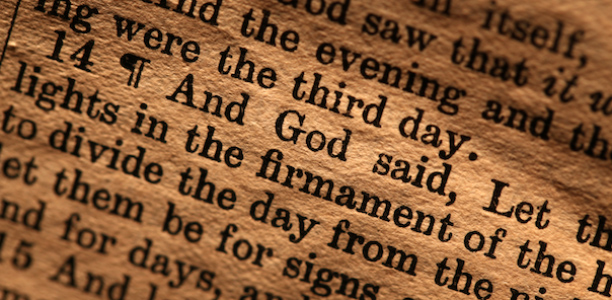By David Faust
 As a Hebrew father and his son take an early evening walk in the hills of Judea, they notice simple treasures in the rocky countryside. The boy stoops down and scoops up a sparkling piece of quartz and a scratchy chunk of sandstone. Some smooth stones grab the boy’s attention next. He asks, “Father, will you tell me again the story about how David used his sling to kill the giant?”
As a Hebrew father and his son take an early evening walk in the hills of Judea, they notice simple treasures in the rocky countryside. The boy stoops down and scoops up a sparkling piece of quartz and a scratchy chunk of sandstone. Some smooth stones grab the boy’s attention next. He asks, “Father, will you tell me again the story about how David used his sling to kill the giant?”
The older man nods and chuckles as his son trips lightly over a large gray rock that blocks their path. Brushing himself off, the boy nonchalantly begins to push the stone aside.
“Wait!” his father shouts, suddenly stern. “Don’t move that rock.”
“Why not?” the son asks.
“That rock is a boundary stone, Son. Your great-grandfather placed it there. It must not be moved.”
Ancient Landmarks
Proverbs 22:28 warns, “Do not move an ancient boundary stone set up by your ancestors.” In those days most fields weren’t separated by fences, nor were there elaborate land surveys and property records on file. An individual could transfer property rights by making a verbal agreement (Genesis 23:17, 18) or by taking off a sandal and handing it to another party in the presence of witnesses (Ruth 4:7). Real estate boundaries were marked by heaps of small stones, ridges or mounds of dirt, ditches, rows of wooden posts, or single stones set upright at regular intervals along the property line.
These ancient boundaries silently reminded all who saw them to treat their neighbors fairly. By relocating boundary stones, a dishonest person could increase his own property and encroach upon a neighbor’s land. In the Jewish mind, removing a landmark was equivalent to theft. Even the slight alteration of a boundary marker would lead to confusion and angry confrontations between neighbors.
Job complained, “There are those who move boundary stones, they pasture flocks they have stolen” (Job 24:2). Hosea declared that Judah’s corrupt “leaders are like those who move boundary stones” (Hosea 5:10). A civil and just society requires citizens and their leaders to know the limits of right and wrong.
Enduring Morals
Today it’s common to blur or ignore moral boundaries, but God’s Word establishes clear, time-tested principles to guide individual and public values. In Exodus 20, God laid down a set of ancient boundaries we call the Ten Commandments. The first four commands—recognize no other gods, don’t worship manmade images, respect God’s name, and observe the Sabbath day (Exodus 20:1-11)—help us fulfill what Jesus called the greatest commandment: to love the Lord our God with all our heart, soul, mind, and strength (Mark 12:30).
The rest of the Ten Commandments (Exodus 20:12-17) help us to love our neighbors as ourselves. Honor your parents. Don’t destroy innocent life. Be sexually pure. Don’t steal, lie, or covet your neighbor’s property.
These are lines we must not cross, boundaries we must observe. One biblical word for sin is trespass—to cross a moral boundary and walk where we shouldn’t walk. There are rights we do not possess, for God alone ultimately has the right to determine what is right. We step out of bounds at our own peril.
It’s unpopular these days to speak about moral absolutes like reverence for the true God, protection of the family unit, and respect for human life, but you and I didn’t make up these boundaries. They came from the flawless mind of the one who created us in the first place.
He even wrote them on stone.
Consider:
1. What God-given boundaries are you tempted to ignore?
2. How are the Ten Commandments still relevant to Christians?
David Faust serves as the Associate Minister at East 91st Street Christian Church in Indianapolis, Indiana.
The Lookout’s Bible Reading Plan for February 8, 2015
Use this guide to read through the Bible in 12 months. Follow David Faust’s comments on the highlighted text in every issue of The Lookout.
Matthew 12:22-37
Acts 17:16-34
Psalm 28
Exodus 13–15
Matthew 12:38-50
Acts 18:1-17
Psalm 29
Exodus 16–18
Matthew 13:1-23
Acts 18:18-28
Psalm 30
Exodus 19, 20
Matthew 13:24-43
Acts 19:1-22
Psalm 31
Exodus 21–23
Matthew 13:44-58
Acts 19:23-41
Psalm 32
Exodus 24–26
Matthew 14:1-21
Acts 20:1-12
Psalm 33
Exodus 27–29



Comments: no replies